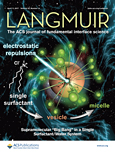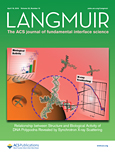 Despite a university’s attempts to avoid discussing a misconduct investigation involving one of its former (and prominent) researchers, we keep reading more about it.
Despite a university’s attempts to avoid discussing a misconduct investigation involving one of its former (and prominent) researchers, we keep reading more about it.
In the third retraction this year for physicist Dmitri Lapotko, the journal mentions a misconduct investigation at Rice University, which concluded the data had been falsified. Trouble is, whenever we’ve tried to talk to Rice about that investigation, they won’t even confirm it took place.
Here’s the retraction notice for “Transient Photothermal Spectra of Plasmonic Nanobubbles,” published by Langmuir:


